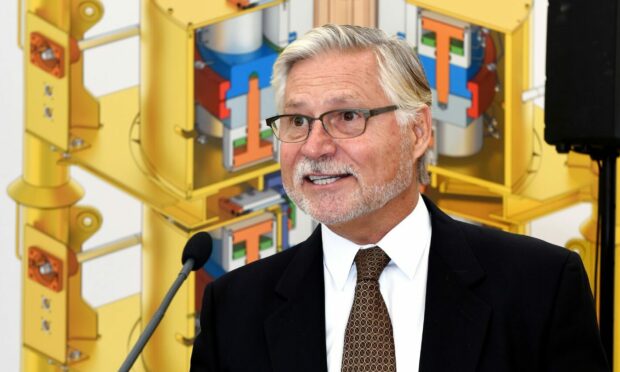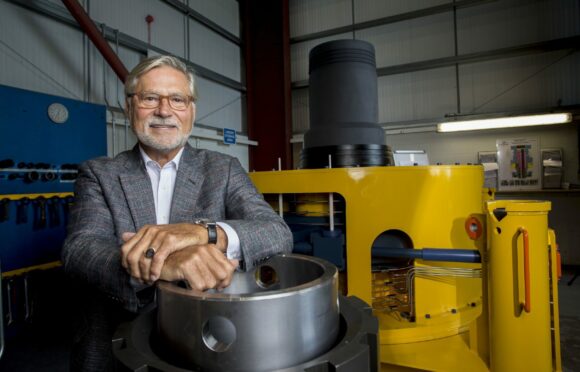Oil and gas businesses need to take action on methane emissions in order to prove to critics they are “real washing” and not “green washing” their credentials, the boss of a subsea technology company has said.
Ben van Bilderbeek, the chief executive of Aberdeen company Plexus, said a “change of mindset among operators is required” to eliminate emissions of harmful methane – a green house gas (GHG) thought to have 80 times the warming power of carbon dioxide.
In a written statement published alongside the engineering firm’s preliminary results, Mr Bilderberbeek argues that “an ounce of prevention is worth a pound of cure” when it comes to GHG emissions and criticised current efforts to monitor methane emissions.
Renewables alone won’t meet demand
He set out that “renewables will not on their own be able to meet the forecast rise in energy demand” and that “the solution is centred around natural gas, the cleanest fossil fuel by far in terms of carbon emissions when combusted”.
However, the benefits of use of gas are “less clear cut” due to associated emissions of methane, he said, adding: “If the world is serious about reaching net zero, and if all that additional demand for energy is to be satisfied, eliminating harmful emissions from gas operations from the well site, and in particular the wellhead all the way through to the consumer, is critical.”
Mr van Bilderberbeek’s company Plexus in fact specialises in equipment that prevents leaks from wellheads. He invented the company’s trademarked “pos-grip” technology which acts to seal pipes.
He urged the oil and gas industry to “embrace our equipment wholeheartedly” – not just for the benefit of his company but in order to create a “virtuous circle” for the industry more widely.
He said: “If the industry changes its ways and takes action to eliminate methane leaks from the supply chain, the prize is potentially huge, not just in terms of value generation for stakeholders simply by avoiding economic gas loss, but also in terms of making meaningful inroads towards achieving carbon neutrality and combatting climate change.
“Leak prevention promises to set off a virtuous circle for both the industry and the environment: eliminating leaks from operations would bolster the argument for natural gas to be formally classified as a transition fuel, which in turn would likely spur much needed investment in gas exploration and production activity, resulting in higher levels of supply to meet the strong growth in demand for energy expected during the transition.”
The company recently achieved recognition by the London Stock Exchange, having been given an “green economy mark” in July 2021 in “recognition of its contribution to the global green economy”. The firm has been listed on the LSE’s junior market since 2005.
Revenues up 400%
Mr van Bilderberbeek also highlighted a “near quadrupling in full year revenues to £2million; the signing of a non-exclusive licensing agreement with top tier supplier Cameron for our POS-GRIP surface production wellhead technology; and the award of a surface production wellhead order from Spirit Energy” as signs that the company’s technology was coming into its own.
The firm said losses have narrowed from £5m to £4.4m in the year to the end of 30 June 2021.
The oil and gas industry has pledged to slash methane emissions by 50% by 2030 against a 2018 baseline, including measures to monitor and abate flaring and venting.
However, Mr van Bilderberbeek claims this approach is “no longer wholly trusted” nor “sufficient”.
He added: “Preventing leaks from happening in the first place by ensuring leak-proof equipment is deployed whenever and wherever possible across the supply chain is surely what is required.”
“Now we need the industry to embrace our equipment wholeheartedly to enable us to finish the job, and by doing so this would, in my opinion, evidence ‘real washing’ as opposed to ‘green washing’.”

